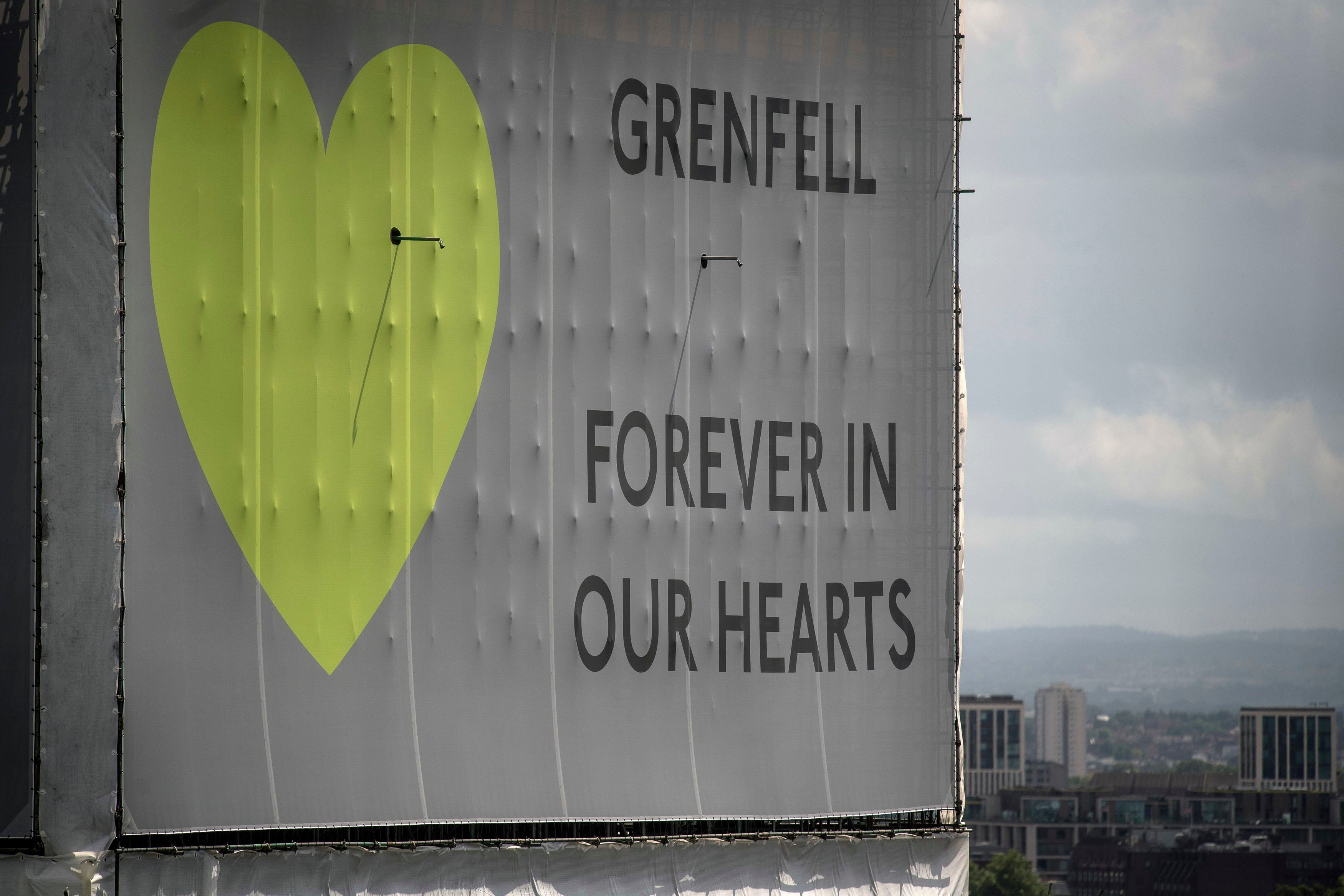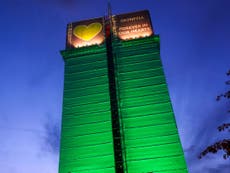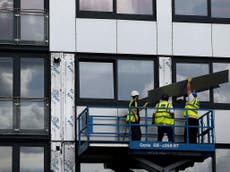Thousands risk bankruptcy due to cost of removing cladding ruled unsafe after Grenfell Tower fire
Some 700,000 people in England still live in buildings with flammable exterior panels, campaigners say

Your support helps us to tell the story
From reproductive rights to climate change to Big Tech, The Independent is on the ground when the story is developing. Whether it's investigating the financials of Elon Musk's pro-Trump PAC or producing our latest documentary, 'The A Word', which shines a light on the American women fighting for reproductive rights, we know how important it is to parse out the facts from the messaging.
At such a critical moment in US history, we need reporters on the ground. Your donation allows us to keep sending journalists to speak to both sides of the story.
The Independent is trusted by Americans across the entire political spectrum. And unlike many other quality news outlets, we choose not to lock Americans out of our reporting and analysis with paywalls. We believe quality journalism should be available to everyone, paid for by those who can afford it.
Your support makes all the difference.When single mother Timea scraped together enough money to buy a two-bedroom flat in London, she looked forward to providing her son with the security of their own home.
But two years later, Timea and thousands of other homeowners in Britain face bankruptcy and homelessness due to the cost of replacing exterior building panels ruled unsafe after a deadly 2017 fire at London's Grenfell housing block, campaigners said.
Leaseholders in Timea's housing development in London will have to pay about £13m to remove the cladding panels, which were used widely to improve buildings' aesthetics and energy efficiency.
That amounts to £35,000 per flat on average, Timea said, although the cost will vary depending on the size of each unit.
"I used all my savings to buy this flat," she told the Thomson Reuters Foundation, adding that neither the building's management company nor the social housing association that owns 65 per cent of her flat had told her about any fire safety issues.
"Now I'm stuck between a rock and a hard place. I can't afford the extra service charge or any further bills to remove cladding but if I don't pay, they can take me to tribunal and terminate my lease," she said in a phone interview.
Timea has already had to stretch her income as a complaints investigator in financial regulation to pay the service charge on her flat, which has nearly doubled to £450 per month.
About 700,000 people in England live in buildings with flammable exterior cladding similar to that used at Grenfell Tower, according to the End Our Cladding Scandal (EOCS) campaign.
A fire tore through the 23-storey block, owned by the wealthy west London borough of Kensington and Chelsea, in June 2017, killing 72 people in Britain's worst blaze in a residential building since the Second World War.
The government announced in March a £1bn fund to remove unsafe cladding from housing buildings that are at least 18-metres (59-feet) tall, but that will only cover about a third of the total cost, Britain's Public Accounts Committee said.
The issue has also rendered up to 1.5 million flats unsellable because their owners cannot demonstrate the safety of their cladding and insulation — a new requirement among mortgage lenders, said Jennifer Reid, an EOCS campaign spokesperson.
"Many flats affected by this crisis are valued at zero so it's hard for people to raise funds against them," she said. "So there's a likelihood that many people will get themselves into serious debt, face bankruptcy and losing their homes."
Research published in June by the UK Cladding Action Group, which represents residents in unsafe buildings, found one in five leaseholders embroiled in cladding issues have had suicidal thoughts or felt a desire to self-harm.
The coronavirus pandemic has already strained the income of millions of Britons, with the Bank of England forecasting unemployment to rise to about 2.5 million by year-end.
Timea, who only gave her first name to protect her identity from an abusive former partner, said she would struggle to find another job in financial regulation.
"The possibility of a fire is not even the biggest issue here," she said. "The legacy of Grenfell is going to be hundreds of thousands of people being made bankrupt and homeless."
Thomson Reuters Foundation






Join our commenting forum
Join thought-provoking conversations, follow other Independent readers and see their replies
Comments